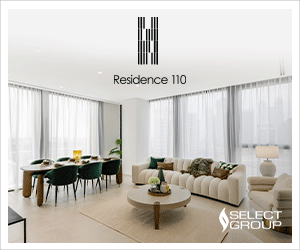The rental prices in Dubai are on the rise. And so is the living cost. Still, due to top-class amenities, upscale lifestyle, and professional opportunities, many move to Dubai every year. And they aren’t hesitant to live in shared accommodations in order to cut down on their budget.
While leading a luxurious life in Dubai is a far-fetched dream for many, the city ensures that everyone gets to ride on this roller coaster. That’s why there’s something for every preference and budget. By this, we’re referring to the permit for shared living announced by the authorities.
Sharing a rental apartment in Dubai isn’t only a cash-saver but a relatively safer alternative, particularly if you’re a newbie to the city. However, specific rules and regulations are attached to the process, which you must follow to avoid legal formalities.
Are you a newbie seeking shared accommodation in the city? Here’s what you should know about Dubai law for shared accommodation.
Dubai Law for Shared Accommodation: What Does It Say?
As feasible as it could, Dubai Law for shared accommodation is equally strict regarding living rules and regulations. Maybe that’s why there’s a strong emphasis on compliance with the laws.
The subleasing law comes under the governance of Article 24 of Law of No.26 of 2007, along with the RERA Tenancy Law.
According to the law, unless both parties agree to the shared accommodation in the tenancy contract, the tenant shall not sublease premises without the landlord’s approval.
While collaborating with the above statement, Article 25 of Law No. 33 of 2008 states that the owner can evict the tenant if he subleases the property. Bear that that’s only possible when the landlord’s permit isn’t involved or not present in the agreement. Also, the decision lies both on the tenant and subtenant, regardless of the expiry of the tenancy contract.
Rules for Shared Accommodation in Dubai
To give you a deeper insight into the laws and regulations of shared living, we’ve summarised the main pointers below:
-
A written agreement is Important.
As a tenant, you can’t sublease a property that isn’t yours. Even if you agree to live on a sharing basis, a written permit from the landlord is necessary.
-
Shared Facilities and Services
Another Dubai law for shared accommodation states that subtenants can amuse with the same privileges as you. It includes different amenities and services like swimming pools, gyms, parking areas and sports clubs, and whatever the community is providing to its occupants.
On the other side, the provision of these privileges depends on the clauses in the agreement between tenants, subtenants and landlords. So, there might be some exceptions. Thus it’s better to discuss everything with the property owner first.
-
Monitor your Obligations
Besides the tenancy contract, you must have a sublease agreement about your relationship with the subtenant. Remember that all the terms and conditions must be present there. However, your obligations as a tenant will stay in effect even with a sublease contract.
-
Number of Tenants
The number of tenants depends on the spaciousness of the property and a written permit from the landlord. The more space a flat has, the more candidates it can accommodate. Yet, this part of Dubai law for shared accommodation won’t work without a green signal from the landlord, regardless of how much space is vacant.
-
Follow the Islamic Traditions
Dubai has always been conscious of its religious values and principles. And as a dutiful citizen, you must abide by the policies respectfully. That’s why bachelors are advised to stay with men and boys. Likewise, women can accommodate the same genders in their rental properties in Dubai. If the authorities catch a woman and a bachelor living together, some serious consequences might await them.
-
Beware of Unlawful activities.
Tenants sharing accommodation in Dubai should be caught red-handed with suspicious activities. It can be drug use, alcohol consumption, or an unmarried lifestyle. Such instances can get them evicted from the property without any notice.
-
It’s the Landlords Land
This Dubai law for shared accommodation talks about the landlord’s rights. They can accept and reject tenancy requests without being answerable to anyone. In Dubai, seeking a property owner with lower standards is particularly challenging. Since there are strict laws regarding livelihood and gestures, they’ve to put their best foot forward.
Fines for Illegal Shared Accommodation
If seen subleasing the place without the landlord’s approval, the acceptable charges range from AED 200 to AED 20,000. It also includes letting subtenants stay without the permit to reside in the same apartment as you. The second offence charges around AED 100,000 as a penalty.
It’s a Wrap!
Sharing accommodation in Dubai is no longer a startling factor but a necessity, especially for newcomers. It’s safer and more feasible to start your career in the city of dreams, Dubai. While it’s wise to begin the sharing venture with the people you trust, the rules still imply. With that said, you must prioritise every Dubai law for shared accommodation mentioned above. Make the process legal even if you’re living with your buddies. And when the time comes, this guide will assist you.



 Join Our Newsletter
Join Our Newsletter